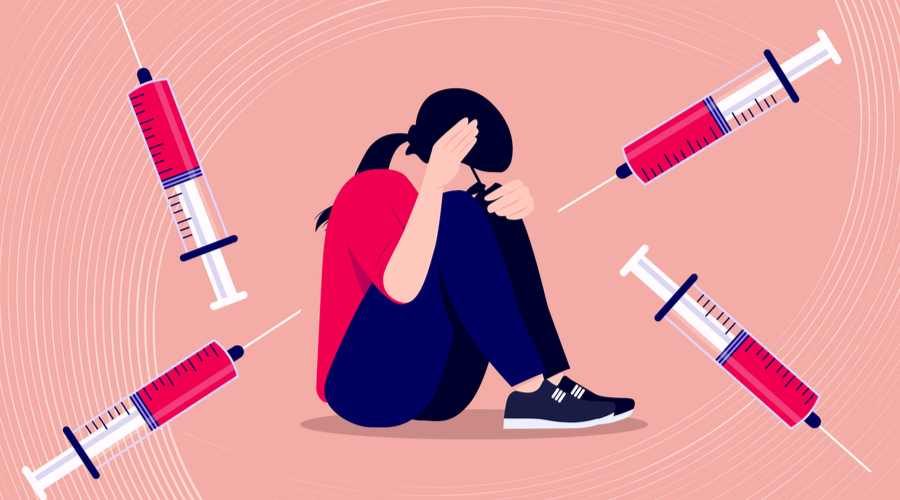Protecting patient information isn’t just a legal requirement— it’s a cornerstone of trust between your pharmacy and the community you serve. In today’s world, data breaches are in the headlines nearly daily, and patients expect their sensitive health records and payment details to remain confidential. While it seems there’s nothing one can do to stop a cyberattack, you can embed privacy safeguards into every aspect of your operation. By doing so, you are preserving your reputation, avoiding costly fines, and contributing to better health outcomes through secure communication and record keeping.
The internet carries a lot of personal information already, as does everyone who has a cell phone, tablet, laptops, or any other device with Wi-Fi or an internet provider. As you know, you’re handling a wealth of private information every day. And with increased convenience and connectivity comes heightened risk. Data breaches, ransomware attacks, and violations of privacy cannot only jeopardize patient trust, but also lead to serious consequences, both financially and legally.
So, how can your independent pharmacy stay safe and compliant in the evolving data security landscape?
As an independent pharmacist, you must navigate a complex web of federal and state regulations governing protected health information (PHI) and payment data. Two of the most critical frameworks include:
- The Health Insurance Portability and Accountability Act (HIPAA)
- Payment Card Industry Data Security Standard (PCI DSS)
These rules set minimal security requirements, mandate breach notification procedures, and establish penalties for noncompliance. Be sure you review your state’s pharmacy board regulations. These often include additional privacy provisions that are tailored to the dispensing of drugs and patient counseling.
As a pharmacy owner, you need to prioritize security no matter what the size of your operation. Pharmacy security systems are great for deterring and preventing break-ins and robberies. However, with all of the valuable assets in your store—including important data—keeping hackers at bay is vital. Here are some tips on how to secure your pharmacy from cyberthreats of all kinds.
Secure Your Digital Systems
Protect your network
- Implement a next-generation firewall to segment your internal network from guest Wi-Fi and public internet traffic.
- Require unique, complex passwords and two-factor authentication for all of your administrative accounts.
Encrypt your data
- Be sure that PHI is encrypted both while “at rest” on servers and “in transit” across your network or to cloud services.
- Use industry-standard encryption protocols such as AES-256 for stored data and TLS 1.2+ for communications.
Update your software management
- Keep your pharmacy management system, operating system, and antivirus software up to date with automated patching.
- Perform routine vulnerability scans and penetration tests to uncover and address weak points.
Physical safety
It’s crucial to cover physical safeguards. Start by restricting server-room access by using keycards or biometric readers. Be sure to maintain a visitor log and lock all filing cabinets and shredders when not being used. This can prevent unauthorized stealing of prescription records.
Install surveillance cameras in critical areas like dispensing counters and storage rooms. This will give you peace of mind that recordings are secure. By taking charge of these measures, you’ll be able to deter theft and unauthorized viewing of patient charts or prescription labels.
Third-Party Risk and Vendor Management
Don’t count on your vendors to manage compliance for your customers. Here’s how you can manage third-party risks:
First, check out vendors for HIPAA and PCI DSS compliance, requesting evidence of certification or audit reports. Be sure to include data privacy and breach notification clauses in every service agreement, and conduct annual vendor risk assessments, adjusting contracts or terminating partnerships if standards slip.
If you want to guarantee your patients’ data remains protected, even when handled by external partners, you need a strong vendor management program. These programs focus on perfecting relationships with key suppliers like pharmaceutical wholesalers, software providers, and other essential service providers. Their goal is to improve efficiency, reduce costs, and enhance patient care by promising reliable access to medications, streamlining operations, and perfecting technology.
Breach Management and Incident Response
First of all, no system is incapable of being affected. If a breach were to occur, quick, coordinated action can minimize the damage. Here’s how:
- Detect and triage. When an incident happens, it’s best to monitor audit logs, intrusion detection alerts, and user reports. Also, classify incidents by severity and scope.
- Contain and eradicate. Isolate affected systems, revoke compromised credentials, and remove malicious code. Be sure to restore from clean backups if needed.
- Notify and remediate. Contact the affected patients and regulators within mandated timelines, and conduct an analysis on the root cause to prevent recurrence.
Maintaining strong data privacy is an ongoing project. It’s a commitment that is a part of your pharmacy’s culture, technology, and partnerships. So, when you understand such things as regulatory requirements, enforcing technical safeguards, and preparing for the unexpected, you’ll be protecting your most valuable asset: your patients’ trust.
Your Checklist of Best Practices
- Conduct yearly risk assessments and update privacy policies.
- Encrypt all PHI and payment data at rest and in transit.
- Enforce strong authentication and limit user privileges.
- Train staff quarterly on data privacy, social engineering, and safe disposal.
- Maintain written agreements and compliance documentation for all vendors.
- Regularly test incident response plans with simulated breach scenarios.
A Member-Owned Company Serving Independent Pharmacies
PBA Health is dedicated to helping independent pharmacies reach their full potential on the buy-side of their business. Founded and run by pharmacists, PBA Health serves independent pharmacies with group purchasing services, wholesaler contract negotiations, proprietary purchasing tools, and more.
An HDA member, PBA Health operates its own NABP-accredited warehouse with more than 6,000 SKUs, including brands, generics, narcotics CII-CV, cold-storage products, and over-the-counter (OTC) products — offering the lowest prices in the secondary market.












